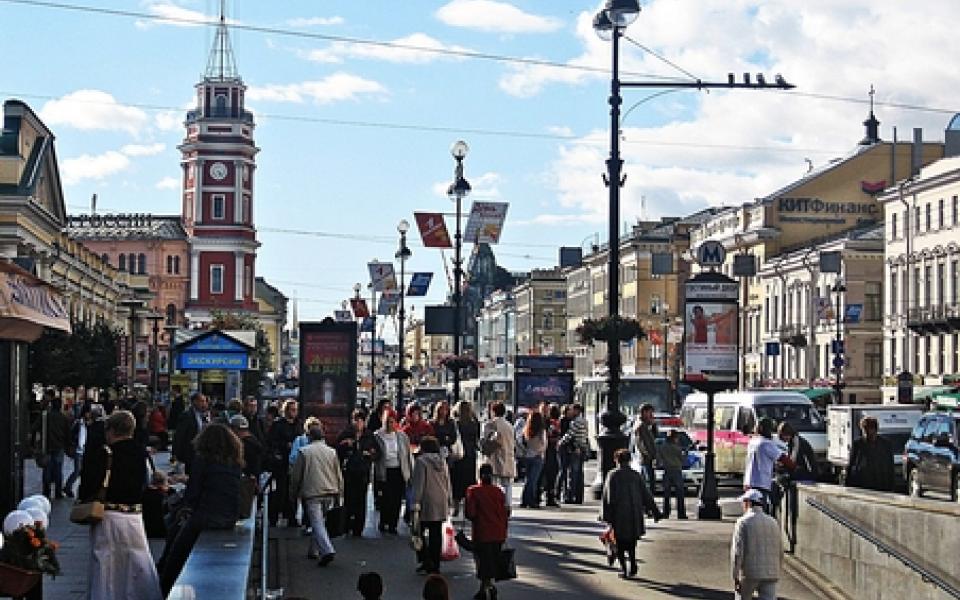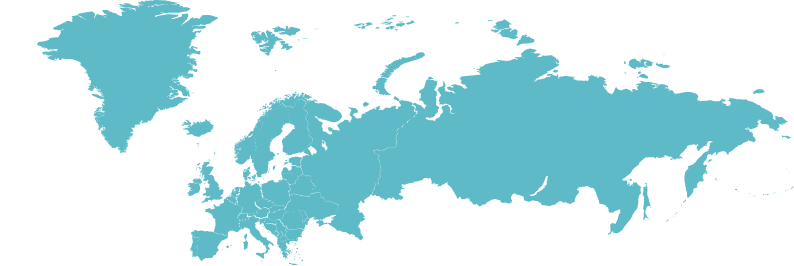
People up and about at Nevsky Prospekt in St. Petersburg, Russia. PHOTO CREDIT: MASSIMILIANOGALARDI
This article was also published on the Huffington Post.
As I walk down Nevsky Prospekt, a thoroughfare in Saint Petersburg, Russia, I see familiar scenes: a mother holding her child’s hand as they cross the street; young lovers oblivious to the crowd rushing by; old men swapping stories on a park bench. These are unremarkable scenes found in cities anywhere in the world - which is exactly what makes this moment remarkable.
Too often, politicians, aided by the media, speak of others as “foreign,” meaning unfamiliar and strange. In trying to rally people around a common identity – “us” – they create a “them” to whom we are not connected. But here on Nevsky Prospekt, surrounded by Russian “foreigners,” I experience only “us.”
In the past year’s news, I have heard almost entirely negative characterizations about Russians. Barraged by this othering, it’s easy to conclude that Russians are strange, foreign and consequently dangerous. I grew up during the Cold War. I was 3 years old during the Cuban Missile Crisis. I remember images of Nikita Khrushchev pounding his shoe at the United Nations, atomic bomb drills, and Brezhnev and the KBG projected at me through the television, forming a foundation of Russian otherness.
Now, 45 years later, after a lifetime of world travels and professional work in intercultural dialogue and global peacebuilding, I stand on Nevsky Prospekt, confronted by stereotypes still embedded in me. Certainly, the corrupt behavior of political leaders past and present, in both Russia and the United States, warrants serious criticism. But why does this extend to entire populations? Who benefits from ordinary people relating to one another as stereotyped objects rather than fellow human beings?
Politicians deal in power, not people. We need to stop allowing our relationships with our fellow human beings from being defined by the self-serving and divisive intentions of politicians who divide and the stereotypical images too often perpetuated by the media. We need to forge people-to-people connections across differences of culture, religion and nationality.
We need to reject the notion that the world is locked in a clash of civilizations. That notion is used by dictators, ultra-nationalists, right wing isolationists, neo-Nazis, Al Qaeda and ISIS to justify their extremist views and the violence that inevitably follows. Noble laureate Amartya Sen wrote in Identity and Violence: the Illusion of Destiny that the path to peaceful coexistence is plural identities which give us multiple points of possible connection with our fellow human beings. For example, a singular identity of being “American” or “Russian” may suit the needs of politicians who wish to manipulate people and rally their constituents. But it prevents the kind of cross-cultural connections that are possible when our identities are multiple.
I appreciate many positive things about my life as an American. I am grateful for the freedoms and opportunities that have been afforded me, well aware that this is not the case for all Americans, and that America’s success has come at the cost of people throughout the world. But I choose to no longer confine my identity to what someone else may define as “American,” or to be manipulated into severing my relationship with the rest of the world. Ethnically, I am of Armenian, Scottish and English origin. I am a citizen of the United States. Religiously, I come from a family that is Anglican, Armenian Orthodox, Methodist and Quaker. My friends include people of many races, ethnicities, religions, nationalities and genders. My other identities include: husband, father, child, Episcopal priest, and lover of music, art, sports, yoga, historical fiction and great coffee. In broadening my identities, I have multiple points of connection to sisters and brothers who may be of a different nationality or religion, but with whom I share common human experiences.
At dinner with a newly-met Russian colleague, we speak of our children, of loving music, dance and sports, and of our dreams of peace for our communities. We did not speak about politics, Putin or Trump, nor of the return of the Cold War, choosing to form a relationship from points of connection. Once formed, we will no doubt explore the disagreements which are part of any healthy human relationship. For me, the “us” versus “them” of Americans versus Russians, formed from the stereotypes of my childhood and reinforced by contemporary American and Russian politicians and the media, is no more. In its place are the Russian people living their lives along Nevsky Prospekt: sisters and brothers in my human family.
